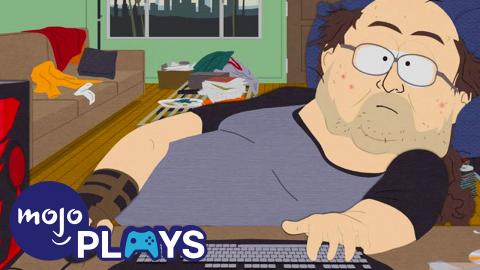Do You Have a Gaming Disorder?

To get your ideas turned into WatchMojo or MojoPlays videos, head on over to http://WatchMojo.comsuggest
You may think that the idea that people game too much it becomes a genuine issue in their lives is ridiculous – but you’d be wrong. In fact, the WHO adding “gaming disorder” is most likely not a response to the crazes of games like Fortnite, but instead to the very real deaths of gamers while playing their favorite games. In many countries in southeast Asia this has become an issue large enough to change police patrols and even add legislation, as more and more young people are whiling away all their time, money and energy gaming online in internet cafés.
In fact, it’s countries like Taiwan, South Korea and China – to name a few – which have been pressuring the WHO to include gaming disorder so that it can be medically looked into. It was in 2012 that a 23-year-old called Chen Rong-yu died in Taiwan after playing League of Legends for 23 continuous hours in an internet café. The same year, a 19-year-old called Chuang Cheng-feng also died in a different internet café in Taiwan when he played Diablo 3 for 10 hours, spontaneously collapsing when he got up to go outside and take a break, pronounced dead at the scene by paramedics. In an effort to prevent this, the Taiwanese police check internet cafés after 10pm to make sure there are no persons under 18 present, and there are even various campaigns aimed at warning the country’s youth about the dangers of gaming. In South Korea there have even been laws passed way back in 2011, making it illegal for teens to play online games in internet cafés after midnight.
Gaming disorder is officially defined as “a pattern of gaming behavior characterized by impaired control over gaming, increasing priority given to gaming over other activities to the extent that gaming takes precedence over other interests and daily activities, and continuation or escalation of gaming despite the occurrence of negative consequences.” These negative effects are things like distress, irregular sleeping, and putting gaming before everything else.
These behaviors must also be noticeably detrimental to a person’s life and would need to continue for at least 12 months. Meaning that everybody getting obsessed with the new Call of Duty for a month after launch won’t put you at risk of having “gaming disorder.” However, the World Health Organization does believe gaming disorder can be as detrimental as drug or alcohol addiction, a classification which has prompted backlash from the gaming community.
However, the WHO’s decision to define “gaming disorder” as a “digital” affliction exclusively has also become a point of contention. After all, there are lots of games people play that aren’t video games; the WHO aren’t accusing frequent D&D players of becoming addicted, and they presumably also wouldn’t try to diagnose a chess grandmaster for practicing too much. The reasoning behind this is unclear, but generally there are less high-profile deaths associated with board games, while video games are always viewed with suspicion by people who don’t play them.
But why is it so important that the WHO classify this as its own disorder? Well, they’re looking to research the effects of excessive gaming on existing conditions like anxiety, depression, ADHD, etcetera, and want to tackle the “gaming disorder” in the hope of tackling the deeper issues. Some experts have said that the “gaming disorder” category removes focus from underlying problems, while others think it’s a necessity. Since “gaming disorder” isn’t an attack on gamers or the gaming industry as a whole, it actually has far fewer cases than people are worried about. However, British professor Mark Griffiths pointed out that “there is no minimum number of cases needed to be identified for a disorder to be classed as such.” If just one person had died in an internet café, there would still be grounds to add “gaming disorder” to ICD-11. After all, what if everyone with a rare disease was told their disease was invalid because not enough people had it?
Ultimately though, one point made by the people against the classification of gaming disorder stands out: why is there no smartphone addiction? Or, why is there no internet addiction more broadly? Why do people who play PUBG all day get slapped with the idea they’re at risk of an addiction more than people who constantly share memes on Facebook? Well in actual fact, the WHO are looking into all of this. They are supposedly investigating smartphones and computers more generally for the same “behavioural addiction pathology”, so in the years to come we may also see wider diagnoses for smartphone and internet addiction. However, both the US Entertainment Software Association and UK Interactive Entertainment are skeptical of the diagnosis, with the chief of Ukie criticizing the WHO for the “inconclusive nature” of the research, and some have also speculated on the WHO risking its own integrity by giving in to pressure from the countries where game addiction is a more persistent issue.
The vast majority of gamers most certainly do not have game addiction and know when to put their games down so that they can get on with other things, like school, work, and their relationships with family and friends. But with the WHO’s findings in mind, maybe spend a little less time gaming, or at least listen to the concerns of those around you if they think you might be overdoing it.
